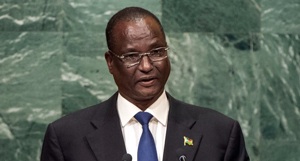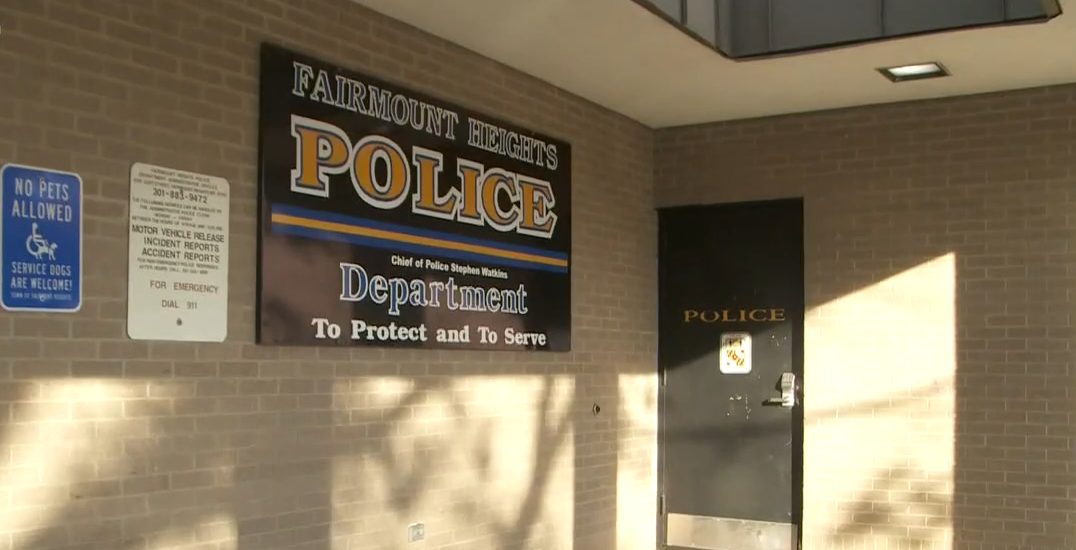Taban Deng who was unilaterally appointed “vice president” by Kiir, outside the scope of the TGoNU agreement. Photo–Un.org
The People are Resisting a Genocidal Regime Under the banner of the SPLM/AIO
In his letter to Mr. Sacha Sergio Llorently Soliz, the President of the UN General Assembly, dated 1st June 2017, Taban Deng Gai, the Juba Regimes First Vice President, attempted to respond to a high level presentation made a day earlier by the Chairman and Commander-in-Chief of the SPLM/A (IO), Dr. Riek Machar Teny-Dhurgon, to the UN Security Council on the Conflict in the Republic of South Sudan.
The presentation that Dr. Riek Machar had made addressed the root causes, the current situation in the country, and the way forward. In other words the presentation addressed the whole situation in the country in a sequential, clear and logical manner.
In his attempt to respond, Taban has made many baseless claims which are lacking in terms of direction, probably hoping to stumble on a magical bullet to shoot down the SPLM/AIO. He ended up making unfounded accusations against either Dr. Riek as a person or against the SPLM/AIO. His statement includes such issues as incitement of a “tribal war,” criminals fighting the state and the people, incitement of the people to fight the regime, his regimes commitment to fully implement the ARCISS, his good working relationship with Salva that allegedly resulted in implementation of the agreement, and what he calls open and transparent dialogue with people.
Since Taban has repeatedly made some of these things issues for debate, it is our intention to let the people of South Sudan and the friends of our people know the truth about these accusations and alleged achievements.
1. Firstly, he talks of “tribes being pitted against tribes,” and he is pointing an accusatory finger at Dr. Riek and the SPLM/AIO. The question is which “tribes” are being pitted against which, and in which way are these “tribes” being pitted against oneanother? Yes, there are outrageous “tribal” attacks taking place throughout the country. We know of the attacks on the Nuer by the “tribal” militia called Mathiang Anyor; we know of the attacks on the Chollo by the same “tribal” militia; we know of the attacks on the Feratit and Jur by the same “tribal militia”; we know of the attacks on Kakwa in and around Yei by the same “tribal” militia; we know of the attacks on Acholi in and around Pajok by the same “tribal” militia; and the list is long.
The question is whose “tribal” militia is Mathiang Anyor, and who commands them? Is it SPLM/AIOs militia, or is it Salvas regime militia? Everyone who knows something about the war situation in South Sudan knows that Mathiang Anyor is a government “tribal” militia commanded by the government generals as part of the army. Their attacks on other “tribes” should be blamed on Salva and his regime.
2. Secondly, Taban, in what he calls an “Update on the Peace Process” in the Republic of South Sudan has not wasted time. He directly goes on to attack Dr. Riek Machar as having failed to forge good working relationships with his bosses throughout the whole general period of the existence of the SPLM/A. He divides the period into four, that is, from 1983 to 1991; 2005 to 2011; July 2011 to July 2013; 2014 to 2016; and May to July 2016. It is conspicuous that he fails to go into the reasons for such differences within the SPLM/A. And that is intentional on his part. He has something to hide. But, what he is trying to hide must be exposed. For the period between 1983 and 1991, wasnt the internal struggle about a united Sudan v. the right to self-determination for the people of South Sudan, human rights abuses v. respect for human rights, and dictatorial rule v. democratization of the movement? For the period between 2005 and 2011, wasnt the difference over free elections, making of a democratic constitution that would guarantee federalism that has been the demand of our people since 1947?
For the period between July 2011 and July 2013, wasnt the difference over the need to have a dialogue within the party to address some grave concerns of the people, and creating a party constitution that would guarantee democracy? For the period between 2014 and 2016, wasnt the issue one of addressing the root causes of the conflict that had been forced on the people by the regime in Juba?
And for the period between May and July 2016, wasnt the issue about Dr. Rieks insistence that the agreement should be implemented in both letter and spirit, as opposed to Salvas insistence that the agreement was NOT made to be implemented, and Salvas determination to include his so-called reservations?
These are the issues. And it is clear that Dr. Riek has been on the side of the people on these issues. Therefore, the issue should not be whether there were no good working relationships forged. Rather, it is a question of why good working relationships were not forged.
3. Thirdly, Taban talks about criminals fighting the state and the people of South Sudan. It is interesting that someone could do something with pride and arrogance knowing full well that it is wrong, and then tries to deny responsibility. The state that Taban talks about as being fought against by criminals is the same criminal state that has been mass-murdering the people of South Sudan for over three years. He now wants to label the people as criminals fighting the state for resisting the killings. Taban should know better than this that the people of South Sudan know who their killer is.
4. Fourth, Taban accuses Dr. Riek and Angelina Teny of inciting the Nuer and other South Sudanese to fight a “tribal” war. He defines such a war as one between the Nuer and the Dinka “tribes.” He is back to the outdated talks which were once associated with Salva, Michael Makuei and Ateny in their attempt to paint the war as one between the Nuer “tribe” and the other 63 “tribes.” They never succeeded because at the very same time that they were trying to rally other “tribes” around the government, they were also busy mass-murdering the same people whom they were trying to rally. It has become useless for them to continue that line of propaganda. Therefore, Taban here is outsmarting himself by trying to use an old and discarded line. If the war is one between the Nuer and the Dinka, what is the fighting in Acholiland for?
What is the fighting in Cholloland for? What is the fighting in Feratitland for? What about in Kakwaland? Why wouldnt the “tribal” war be confined to the Dinkaland and Nuerlandthe lands of the two allegedly fighting “tribes”? If both the Nuer and other South Sudanese are incited, as Taban alleges, to fight a war against the state, then the war ceases to be “tribal.” It becomes national. The question should be Who incites the nation to fight the state? It is the regime that has been killing the people indiscriminately. The people are only organizing themselves under the banner of the SPLM/AIO to resist a killing regime. It is not their fault. They have a right to protect themselves from a genocidal state.
5. Fifth, full implementation of the ARCISS is something that Taban wants to tell the world that his government is pursuing. The SPLM/AIO is for the full implementation of the ARCISS in both the letter and spirit. The regime is for a selective implementation. Salva is on record that this agreement was not made to be implemented. Provisions that they are not happy with are either placed in the back burner, or given different constructions that suit the regimes interests. They do things that are actually against the agreement and call them parts of the implementation of the agreement.
For example, in October 2015, months after the signing of the agreement, Salva issued a decree creating 28 states against the 10 states recognized by the agreement. Taban calls this an implementation of the agreement and boasts about increasing them to 32. Is this an implementation or a violation?
6. Sixth, he has also made his alleged good working relationship with Salva an issue by repeating it several times, and claims that Dr. Riek had failed to forge a good working relationship with Salva. That is not true. He is at good terms with Salva because he has allowed Salva to do anything that he feels like doing in violation of the agreement. Put it differently, he has surrendered to Salva. What he calls Dr. Rieks failure to implement the agreement due to lack of good working relationship was actually Dr. Rieks failure to allow Salva to operate outside of the agreement. For example, the agreement did not stipulate that Salva had a right and power to unilaterally increase the number of states by decree during the transitional period. Instead, the number of states was to remain at 10.
The increase of the number of states was to be tackled by the people through the processes of the making of the permanent constitution. Going around this constitutional process is a big violation, which cannot be tolerated.
7. Seventh, Taban talks of his regime taking control of the states through open and transparent dialogue with people. The following are some of the areas he has cited as having come under his regimes control through such alleged means: a) Bie and Akobo states. He claims that through his regimes alleged policy of open and transparent dialogue, his regime has taken control of 95% of these areas. What needs to be known to those who do not know is that what Taban is referring to as open and transparent dialogue in these areas is the regimes recent dry season military attacks on Yuai and Waat in February and April 2017 respectively in which the regimes forces killed and displaced many innocent civilians (Protection Cluster Update: Conflict displacement in Jonglei 5 May 2017). Can a hostile takeover of the two towns be talked of as a dialogue?
Do the towns of Yuai and Waat constitute 95% of the Lou territory? b) Fashoda state. He claims that his regime has taken control of 90% of the state through open and transparent dialogue.
The truth is that beginning from 25th of January, 2017, the regime launched a number of devastating attacks on SPLM/AIO positions and civilian settlements. These attacks reached Wau Chollo on 29th of January 2017, killing many children and women and displacing more than 20,000 civilians. The regime attacked by both ground and air, and burned down entire settlements. These killings and displacements are certainly not open and transparent dialogues. You cannot dialogue using guns, bullets and fire. These were very deadly military offensives. But the people have stood up and resisted valiantly. c) Equatoria. In his letter, Taban claims of his regime having 100% control of this region. It has to be made clear that what he calls open and transparent dialogue in Equatoria includes the burning of villages, displacing and killing of civilians by the regimes forces (including the “tribal” militia) in Central and Western Equatoria states (CTSAMM Report # 034), recent killings and displacements of civilians in Pajok beginning on April 3, 2017 (CTSAMM Report # 038) in Eastern Equatoria, and so on and so on. The region is on fire enduring attacks from the regimes forces days and nights. There is no such thing as regimes 100% control of Equatoria. The whole thing is a baseless propaganda.
With these few remarks, it is hoped that South Sudanese of all walks of life and their friends outside the country could see the regime in Juba for what it really is. No amount of lies can change the current situation. The regime should stay reminded that the people of South Sudan can no longer be hoodwinked. They know what they are struggling for, and they know who is killing them on daily basis. They have successfully defended themselves for the whole period of the war (more than three years).
The regime no longer has what it takes to ignore them. Only at its own peril can it ignore and pretend that everything is alright. The best thing to do to save itself from the wrath of the people is to start moving towards the peoples demanda political process to peacefully resolve the conflict using ARCISS as the starting point.
Response By SPLM/AIO












